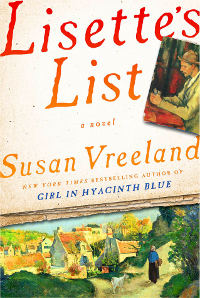 I’m thankful today for wisdom from two diverse sources—a research professor in social work and a historical novelist.
I’m thankful today for wisdom from two diverse sources—a research professor in social work and a historical novelist.
Yesterday morning before church I watched a few minutes of Oprah’s Super Soul Sunday program, because she had Brené Brown as her guest. I did a few posts about Brown about a year and a half ago, including these: (Click on any link that interests you, or just skip over these.)
“Cultivating Self-Empathy: the Antidote to Shame”
“Unraveling With Help from Courage, Compassion and Connection.”
I only watched a few minutes of yesterday morning’s program, but I hurried to get a piece of paper and a pen to write down these powerful words:
In order for forgiveness to happen something has to die.
I Googled the phrase and found it quoted in numerous places—it has obviously made a big impact on many people. In the interview with Oprah, Brown explained that in order to forgive, we have to grieve the loss, whether it be the loss of a marriage, a relationship or a dream of how we hoped things would be. Only then can we forgive and move on to our new normal.
How powerful. In order to let go of whatever bad feelings I have towards someone, in order to truly forgive them, I’m going to have to feel some pain. I’m going to have to let go of what I wish could have happened—to grieve that loss—and let go.
 Novels often speak the truth as strongly as nonfiction. I’m reading Susan Vreeland’s latest novel right now—Lisette’s List. Like most of Vreeland’s writing, it’s historical fiction with art at its core, and I’m loving the book. But again, it was just one phrase that grabbed my attention when I was reading it this weekend:
Novels often speak the truth as strongly as nonfiction. I’m reading Susan Vreeland’s latest novel right now—Lisette’s List. Like most of Vreeland’s writing, it’s historical fiction with art at its core, and I’m loving the book. But again, it was just one phrase that grabbed my attention when I was reading it this weekend:
Yet holding a grudge against the man I love felt terribly wrong. It was entirely against my conscience and would only compound my grief. I would have to forgive him anew each day, in a surge of love, perhaps even begrudgingly at times, until I forgot what I’d needed to forgive him for. At the moment, I could not imagine that day ever coming, though I resolved to try.
This is the second part of forgiveness that I’m trying to learn—that I have to do it anew each day, until eventually (hopefully) it’s no longer an issue. And yes, sometimes I will do this begrudgingly, and yes, it will require a surge of love.
Note: Just before publishing this post, I picked up a copy of AARP Magazine and read—among the “Top 50 Ways To Stay Healthy”—this advice (#20):
Stop Stewing. Forgiveness helps to reduce blood pressure and lower your heart rate, especially when it comes to betrayal and conflict, according to a study published in the Journal of Behavioral Medicine.
Good quote from Brene Brown. Something, the only thing left to die is the insistence of our own clenched fists around unforgiveness. Been there. Still have one or two. Working on them because, frankly, at my age, my fist is becoming perpetually cramped.
I hear you, Susan. Getting older has some perks.